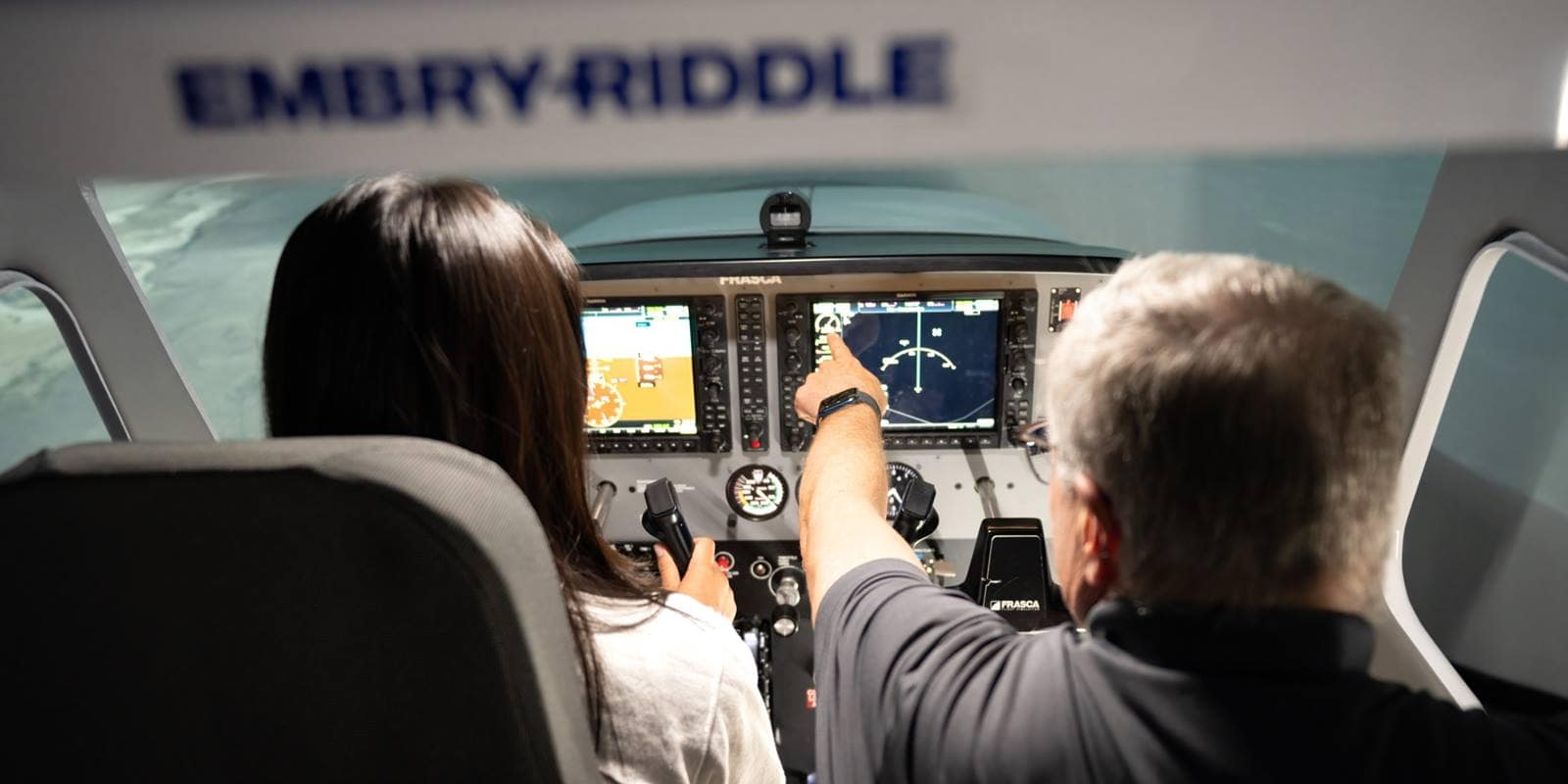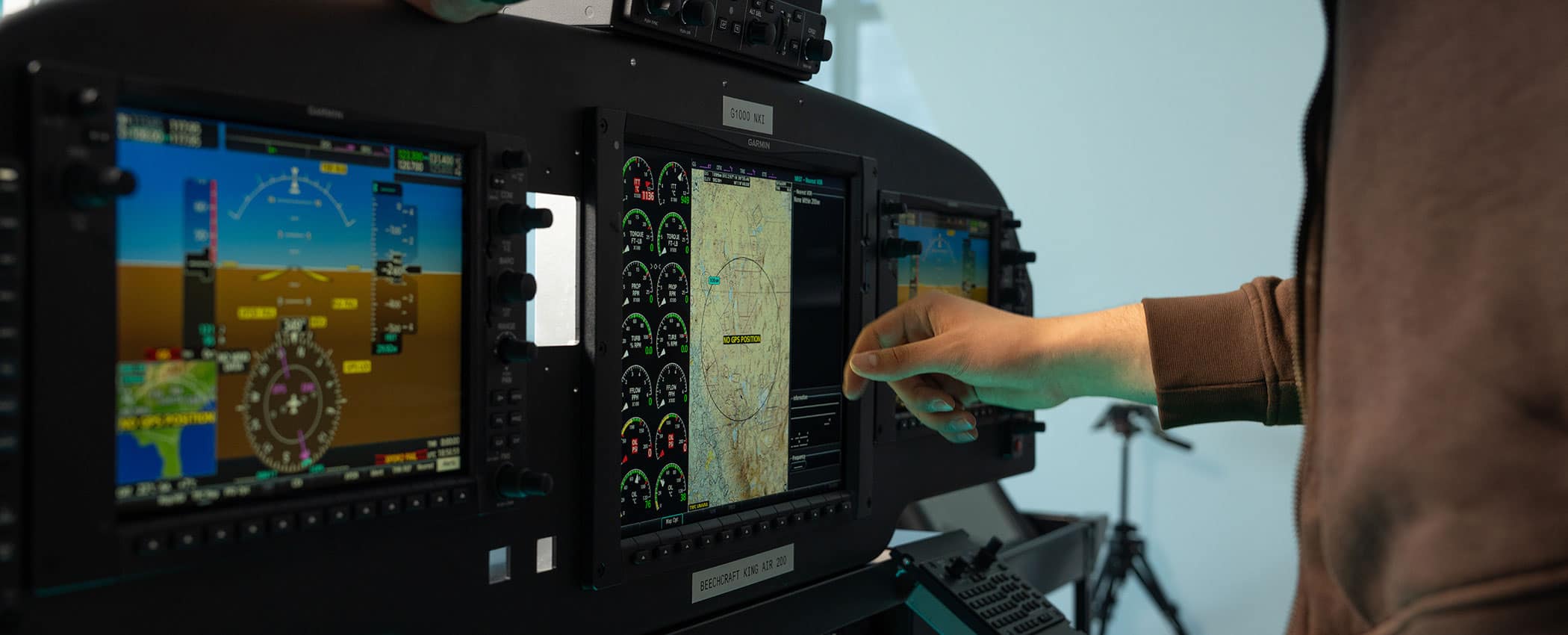
Master of Science in
Aviation Safety
The Master of Science in Aviation Safety covers the full scope of aviation and aerospace safety while offering the option for an additional two-course thesis.
About the Master of Science in Aviation Safety
In today's rapidly evolving aviation industry, managing risk and exploring new ways to ensure safe operations is more important than ever. The Master of Science in Aviation Safety is designed to meet the growing demand for professionals who understand the technical challenges of flight safety and can think critically to anticipate the needs of a dynamic and ever-changing industry.
Student Learning Outcomes
Opportunities available to you while studying aviation safety:
- Pursue an industry-leading curriculum that includes specific technical skills needed to secure employment in aviation safety like system safety, program management, data analysis and accident investigation
- Improve your skills in communication, teamwork and critical thinking
- Leverage the resources of the Boeing Center for Aviation and Aerospace Safety
- Work with students and instructors from around the world
- Learn from instructors with deep industry, government and academic experience
Aviation Safety Career Opportunities
Careers and Employers
Embry‑Riddle’s expert faculty and reputation for academic and research excellence help give students the safety science skills that are needed. Roles that can be filled by flight safety graduates include:
- Accident Investigator
- Safety Program Manager
- Director of Safety
- Safety Data Analyst
- FOQA Manager
- ASAP Manager
- LOSA Manager
- Operations Safety Coordination
Graduates earning an online master’s in Aviation Safety tend to enter the industry with companies such as:
- Delta Air Lines
- National Transportation Safety Board (NTSB)
- Airline Pilots Association (ALPA)
- American Airlines
Aviation Safety Salary Information
As of 2023, graduates with an aviation safety master's degree tend to receive competitive salaries, with an income range of $75,000 to $102,000 annually.
DETAILS
About Aviation Safety at the Worldwide & Online Campus
The online master's in Aviation Safety, available through the Worldwide Campus, allows busy professionals to learn when and where they want, making it ideal for those who want to boost their current skills or begin a new career path.
Classes in flight safety address all current safety issues based on feedback from our extensive industry connections and our faculty members, who have vast practical experience in safety science.
All students pursuing a Master of Science in Aviation Safety will have the opportunity to use the Virtual Crash Lab, where they can map a crash site and investigate wreckage through an online interface.
Aviation Safety Information
- Credits: 30-36
- Online or In-Person: Fully online
- Thesis: Thesis Option
Helpful Links
- Attend a Worldwide Virtual Info Session
- Discover the Department's Faculty
- Explore the Fields of Study: Aviation
- Find Related Clubs & Organizations
Student Learning Outcomes
Students will:
- Apply knowledge of mathematics, science, and applied sciences at various levels of education.
- Interpret data provided from various sources.
- Make positive contributions and function on multi-disciplinary teams.
- Understand professional and ethical responsibility as it applies to the aviation industry.
- Communicate effectively using technical writing and verbal communication skills.
- Recognize the need for, and be able to engage in, lifelong learning.
- Reflect knowledge of contemporary issues affecting the aviation industry.
- Use the techniques, skill, and modern technology necessary for professional practice.
- Possess an understanding of the national and international aviation environment.
- Apply pertinent knowledge in identifying and solving problems.
- Possess knowledge and understanding of business sustainability as it applies to aviation industry issues.
- Apply advanced qualitative and quantitative problem-solving skills.
DEGREE REQUIREMENTS
Core/Major
| ASCI 604 | Human Factors in the Aviation/Aerospace Industry | 3 |
| ASCI 645 | Airport Operations and Management | 3 |
| MSAS 611 | Aviation/Aerospace System Safety | 3 |
| MSAS 612 | Aviation/Aerospace Industrial Safety Management | 3 |
| MSAS 615 | Aviation/Aerospace Accident Investigation and Analysis | 3 |
| MSAS 621 | Aviation/Aerospace Safety Program Management | 3 |
| MSAS 627 | Aviation Safety Data Management and Analysis | 3 |
| RSCH 665 | Statistical Analysis | 3 |
| SFTY 540 | Disaster Preparedness and Emergency Response | 3 |
| ASCI 693 | Current Research Problems in Aviation/Aerospace | 3 |
| Total Credits | 30 | |
Thesis Option
| RSCH 700A | Thesis I | 3 |
| RSCH 700B | Thesis II | 3 |
| Total Degree Requirements (Thesis Option) | 36 | |
Get Started Now:
Summary
30-36 Credits
Estimate your tuition by using the Tuition Calculator
View Financial Aid Information
Learn more about the benefits of an Online Degree
Learn about our General Education
Find out about transferring credits to this degree
Learn more about our Veterans & Military benefits
View our Academic Calendar
Search Courses for this degree




